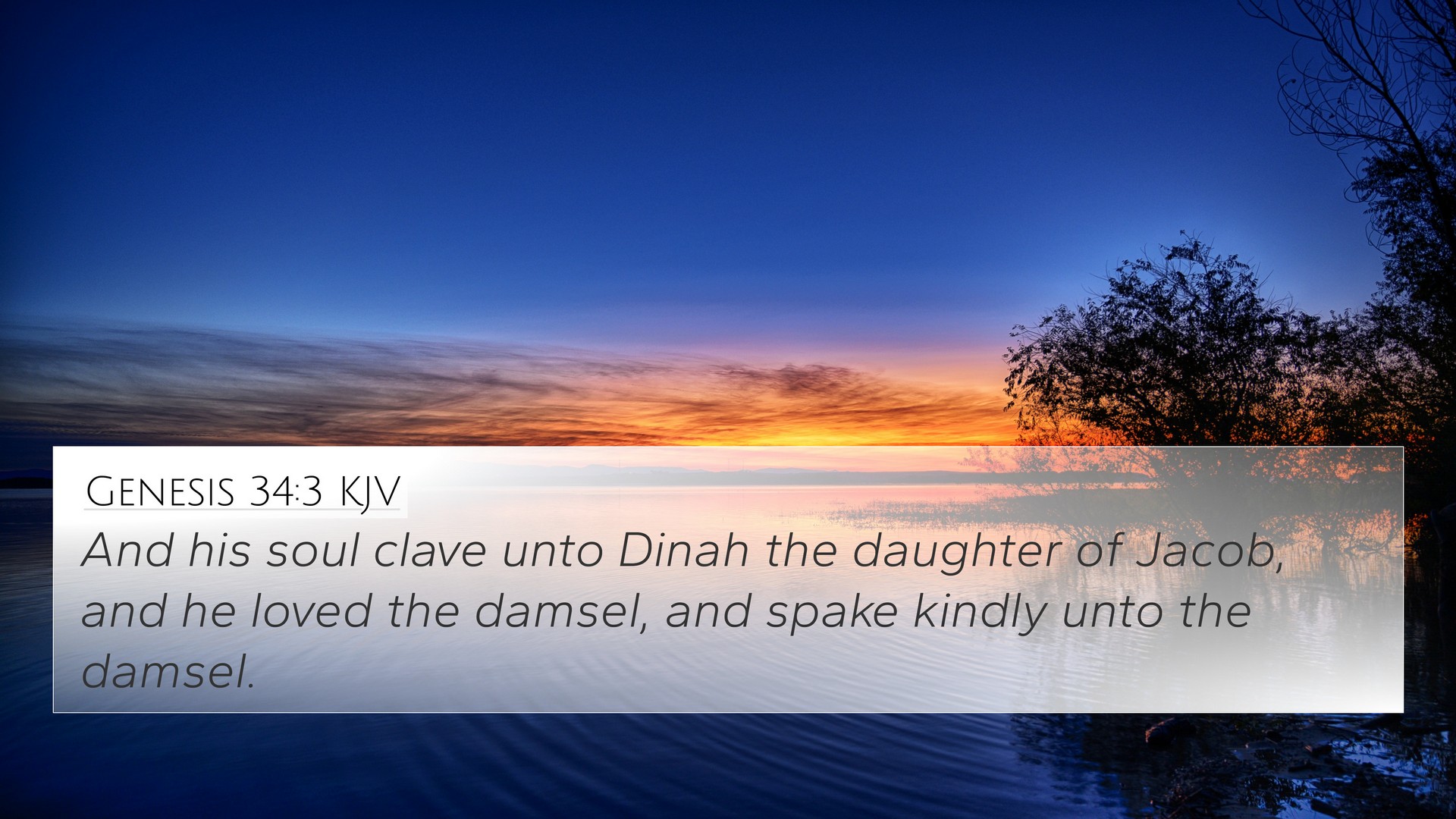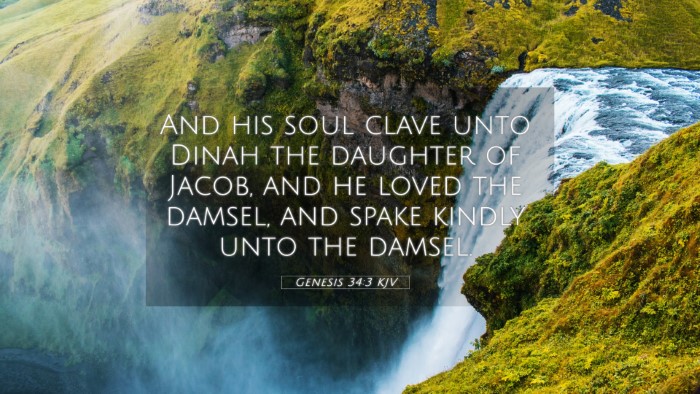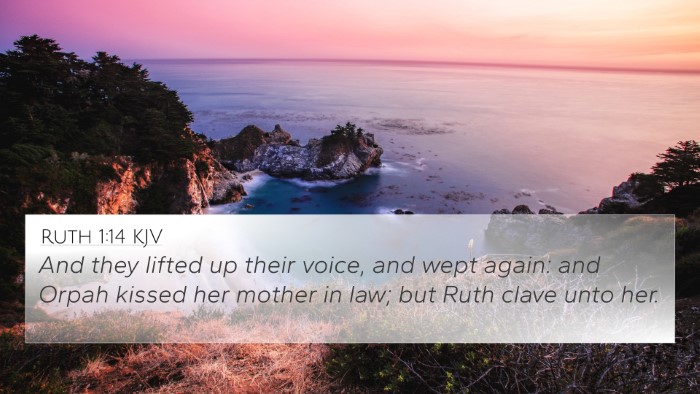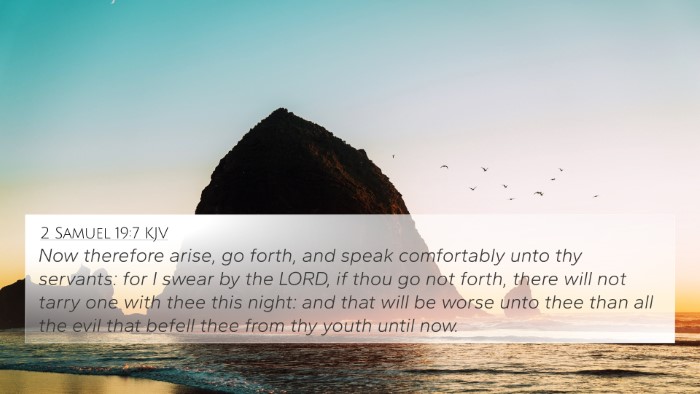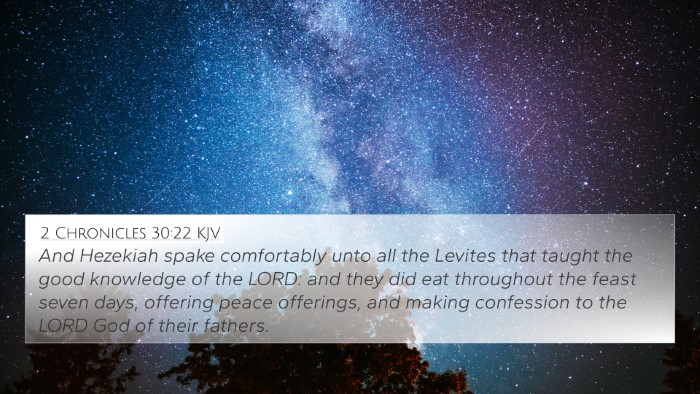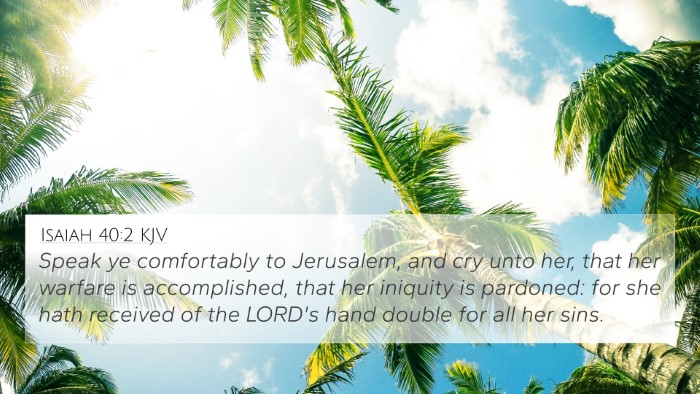Meaning and Interpretation of Genesis 34:3
Genesis 34:3 reads:
"And his soul clave unto Dinah the daughter of Jacob, and he loved the damsel, and spake kindly unto the damsel."
Contextual Overview
This verse depicts the interaction between Shechem, the son of Hamor, the Hivite, and Dinah, the daughter of Jacob. It is essential to understand that the surrounding verses describe the events leading to a significant incident in Jacob’s family, influencing the narrative of the Israelites.
Commentary Insights
Matthew Henry's Commentary
Matthew Henry suggests that Shechem’s affection for Dinah marks a pivotal moment, highlighting themes of desire and manipulation. He notes that the use of "clave" implies a deep emotional bond, which further complicates the situation as Shechem's intentions may not be entirely pure. It leads to a broader moral discussion about love and honor among family relationships.
Albert Barnes' Commentary
Albert Barnes expounds on the term "clave," implying a strong attachment that goes beyond mere attraction. He mentions Shechem's attempts to express love through kind words, which contrasts sharply with his later actions. This relationship is a reflection of the cultural interactions between the Israelites and the Canaanites, symbolizing deeper conflicts that arise from such unions.
Adam Clarke's Commentary
Adam Clarke focuses on the implications of Shechem's actions, stressing the seriousness of his relationship with Dinah. He reflects on the potential dangers posed by mingling with the surrounding nations and how it can lead to moral decay. Clarke suggests that the love mentioned here sets in motion events that have dire consequences for Jacob and his family.
Thematic Connections
This verse connects to various biblical themes concerning love, family honor, and the consequences of intermarriage. It serves as a precursor to discussions about fidelity and the righteousness that God desires from His people.
Cross-References
Genesis 34:3 can be cross-referenced with several other biblical passages that provide further context and insight:
- Exodus 34:12-16: Warns against forming covenants with other nations, highlighting potential pitfalls.
- Deuteronomy 7:3-4: Advises against intermarriage with non-Israelites to preserve faithfulness to God.
- Hosea 7:8: Discusses the consequences of Israel mingling with foreign nations and turning away from God.
- 1 Corinthians 15:33: "Bad company corrupts good character," applicable in the context of Shechem and Dinah's relationship.
- Mark 12:31: Raises the notion of loving one another, which can bring complexity when intersecting with cultural differences.
- 2 Corinthians 6:14: Speaks against unequally yoked relationships, echoing the issues raised in Genesis 34.
- Romans 12:2: Emphasizes the importance of not conforming to this world, relevant to Dinah's situation.
Conclusion
The verse Genesis 34:3 serves as a critical point in understanding the relational dynamics between the Israelites and neighboring peoples. Through the analysis of various commentaries, one can identify that the themes presented extend far beyond mere folklore but present fundamental truths regarding love, honor, and moral consequences.
Exploring Connections Between Bible Verses
For better understanding, those studying Genesis 34:3 should consider the broader narrative of God's intentions for His people and the warnings found throughout scripture. This can be an entry point for extensive comparative Bible verse analysis, using tools such as Bible concordances and cross-reference guides to delve deeper into these themes.
Using a Bible cross-reference system can illuminate other scripture parallels, enhancing one’s understanding of complex biblical narratives. For instance, examining parallels in narratives of Jacob's descendants and their allegiances could offer insights into the larger message of inter-biblical dialogue.
